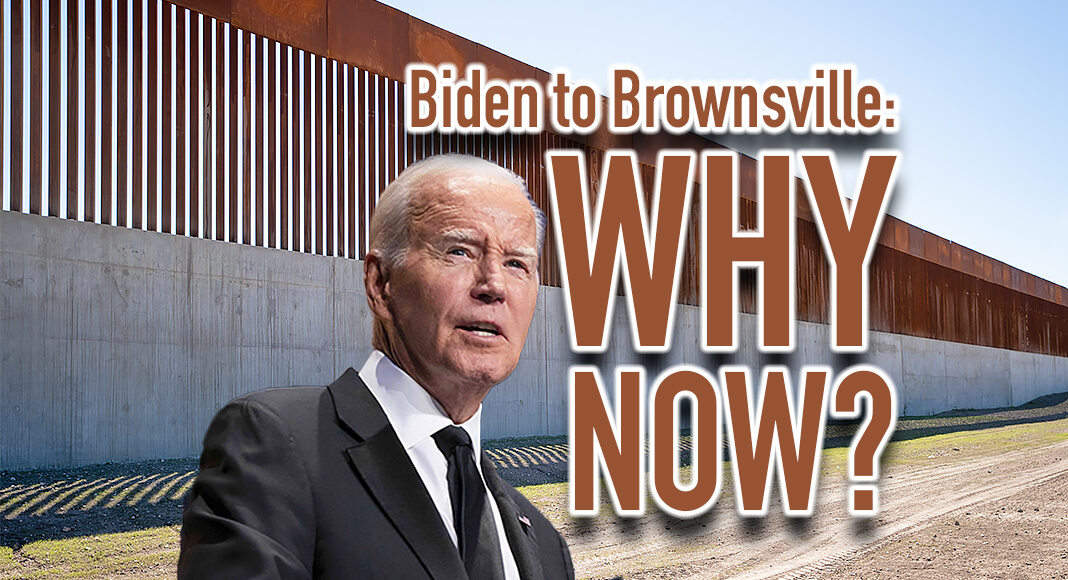
Texas Border Business
Texas Border Business
President Joe Biden’s upcoming visit to Brownsville, Texas, on Thursday brings into sharp focus the ongoing debate surrounding U.S. border policy and immigration management. As the nation turns its gaze towards the southern border city, the trip is being framed by some as a long-overdue acknowledgment of a crisis that critics argue has been aggravated by the administration’s policies. With this being only his second visit to the border since taking office, there is a palpable sense of suspicion about the timing and motives behind the President’s agenda.
The visit comes during escalating tensions and challenges at the border, including a significant increase in the number of migrants, which has placed an unprecedented strain on resources and highlighted the urgent need for comprehensive immigration reform. The White House has announced that Biden’s itinerary includes meetings with U.S. Border Patrol agents, law enforcement officials, and local leaders to discuss the imperative of bolstering border security and addressing the complex requirements at the heart of the migration issue.
Biden’s Border Strategy Faces Fiscal Scrutiny Amid National Debt Concerns
As President Joe Biden seeks congressional approval for increased funding for border security and immigration management, including hiring more U.S. Border Patrol agents and asylum officers and implementing advanced fentanyl detection technology, his administration faces growing criticism over fiscal responsibility. The proposed measures, part of a comprehensive strategy to address immigration and drug trafficking challenges, coincide with a request for a $60 billion aid package for Ukraine, sparking debate over the administration’s spending priorities in light of the U.S.’s $34 trillion national debt.
Critics argue that rather than allocating additional funds, the administration should focus on enforcing existing immigration laws, many of which were emphasized during former President Donald Trump’s tenure. They contend that increased spending, especially in the context of an already staggering national debt, is unsustainable and could worsen the country’s fiscal challenges.
The concern over fiscal prudence is critical for the U.S. economy. The growing national debt poses significant risks, including the potential for increased interest rates, reduced investment, and eroded confidence in U.S. financial stability. Such outcomes could dampen economic growth, hinder innovation, and place an undue burden on future generations.
To navigate these fiscal challenges, experts advocate for a balanced approach that includes strategic investment in national priorities, such as border security and immigration reform, coupled with disciplined fiscal management. This entails making difficult decisions on spending cuts, enhancing revenue through tax reforms, and ensuring the sustainability of entitlement programs.
The debate over fiscal responsibility and national debt management looms as the Biden administration pushes forward with its border security agenda. It underscores the need for a comprehensive strategy that addresses immediate challenges at the border and considers the nation’s long-term fiscal health. In collaboration with Congress, the administration must find a path supporting essential security measures while safeguarding the nation’s economic future.
However, the backdrop to Biden’s visit is colored by the contentious political climate, especially with Donald Trump, his probable contender in the upcoming November presidential election, planning to be in Eagle Pass, Texas, on the same day. These parallel highlights the polarized views on how best to manage the U.S.-Mexico border and deal with the complex issues of migration and drug trafficking.
Critics of the administration point to Biden’s previous visit to El Paso, Texas, in January 2022, as a missed opportunity to grasp the full extent of the border crisis. During that visit, Texas Governor Greg Abbott presented Biden with a letter urging more vigorous enforcement of federal immigration laws, underlining the deep divisions over border policy. Despite the administration’s efforts to introduce new policies aimed at facilitating legal entry for migrants from specific countries while also enforcing stricter controls on illegal crossings, these initiatives have been met with mixed reactions. Critics argue that the expansion of Title 42 and the introduction of legal pathways for a limited number of migrants have not sufficiently addressed the broader issues at play.
As President Biden prepares to visit Brownsville, the administration faces the challenge of convincing a skeptical public and political opponent of its commitment to securing the border and managing immigration effectively. The question remains: will Biden’s efforts in Brownsville be seen as a genuine step towards addressing the border crisis, or will they be viewed as too little, too late, in the face of challenges that have only intensified under his watch?
















